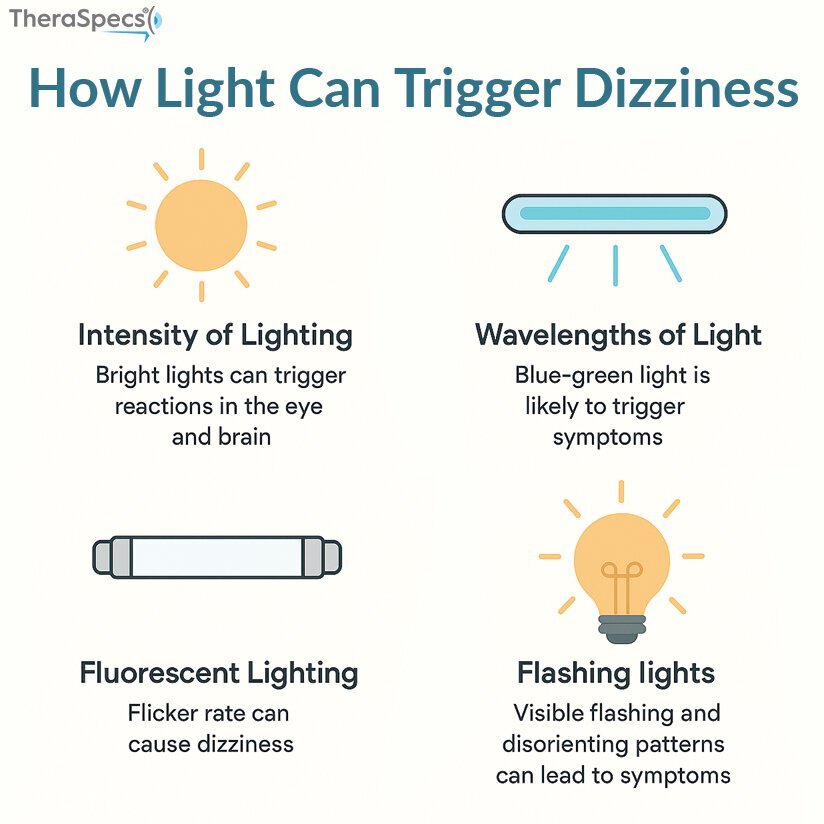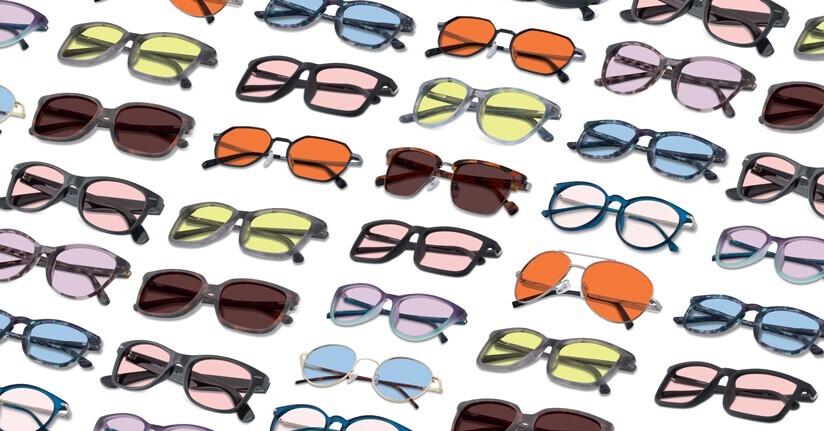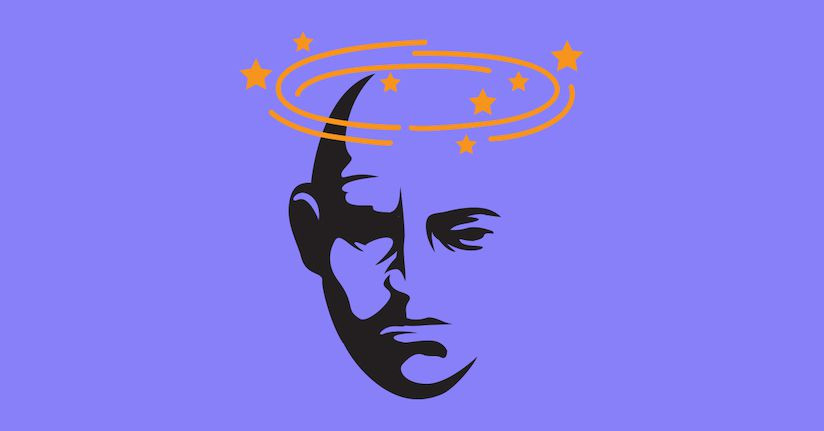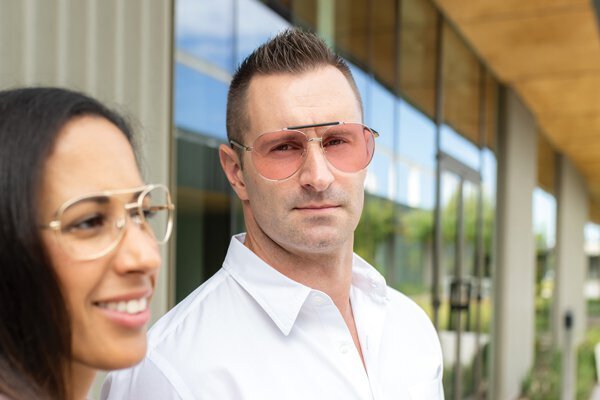Light Sensitivity and Dizziness
Key Highlights
- There are numerous conditions that have both light sensitivity and dizziness as core symptoms
- These conditions include Vestibular Migraine, Meniere's Disease, Traumatic Brain Injuries, and more
- Light exposure can also trigger dizziness and vertigo, with brightness, blue-green wavelengths, and flashing as contributing reasons
- There are options to manage both dizziness and light sensitivity, from medications and behavioral changes to precision-tinted glasses for light management
It is no surprise that light can play a major role in how people feel—from triggering or worsening headaches and photophobia to migraine attacks and eye strain. But there is a particularly curious connection between light sensitivity and dizziness. We answer many of the key questions between these two symptoms and take a closer look at how light acts as a trigger for dizziness and vertigo.
What are the causes of light sensitivity and dizziness?
Most often, light sensitivity (also termed photophobia) and dizziness are symptoms of a diagnosed medical condition. Some of the most common disorders include:
- Vestibular Migraine
The diagnostic criteria for Vestibular Migraine naturally features vestibular symptoms like dizziness and vertigo, as well as more typical migraine-like features such as photophobia. Upwards of 90% of people with vestibular migraine report experiencing both of these issues. - Meniere’s Disease
Meniere's Disease, a disorder of the inner ear, shares many characteristics with Vestibular Migraine. These overlapping migraine symptoms may play a role for the estimated 40% of people who also have light sensitivity. Of course, recurring vertigo and dizziness are key symptoms as well. - Post-Concussion Syndrome & Brain Injuries
Traumatic brain injuries, including concussions and persistent post-concussion syndrome, are among the leading causes of dizziness and sensitivity to light. In fact, both have been separately identified as the second most common symptom of a concussion—only after headache pain.1,2 - Vertigo / Visual Vertigo
Visual vertigo is interesting because, although painful sensitivity to light is not a common feature, light (particularly fluorescents) can bring on vestibular symptoms such as dizziness and motion sensitivity. - Autism Spectrum Disorders
The environment is a critical factor in the symptoms associated with autism, with disorienting patterns, bright and/or flashing lights, and fluorescent lighting all serving as possible triggers for dizzy spells and light sensitivity.
Can certain lights trigger dizziness and vertigo?
If light makes you dizzy, you are not alone. The truth is any type of bright light can cause dizziness for someone who is light sensitive and/or prone to vertigo. Big box stores can be especially troublesome, mostly due to the prominence of bright fluorescent lighting. We asked TheraSpecs customers to share their experiences, and these are some of the stories they told us:
"As a child, [my husband] discovered that he would pass out when strobe lights would come on. Often times throughout our 31 years of marriage, strobe lights would come on at weddings, special events, while we were dancing, etc. Always with the same result…he gets dizzy, headache, and has to bury his head so that he doesn’t pass out."
--Janice
"Before [TheraSpecs], I would walk into a place with fluorescent lighting and become quickly disoriented - dizzy, nauseous, headache, blah. I would have to leave and I would carry those symptoms for many hours if not all day...draining to say the least."
--Heather
Clearly it is an issue for many people. But why does it happen?

The answer is not clear cut, but there are some hypotheses that researchers have suggested. One reason might have to do with the intensity of lighting. Bright lights are capable of triggering dizzy spells because those with chronic light sensitivity often have a lower threshold to light in general. This means even moderately bright light can trigger reactions in the eye and brain, thus bringing on symptoms of their condition.
Other studies have shown that the wavelengths of light being emitted also matters. Blue-green light is the most likely to trigger photophobia, migraine attacks, and other symptoms of chronic conditions (including vertigo, dizziness and disequilibrium). Plus, these wavelengths are literally everywhere...in fluorescents, device screens, and other forms of artificial light.
An added complication can also be found in many types of fluorescent lighting. Experts have acknowledged that fluorescent lights can make a person feel dizzy due to their inherent flicker rate. This flickering is invisible to the naked eye but still causes unwanted reactions in the brain. As a result, those with photophobia can be triggered within just a few minutes of exposure—and thus bring about dizziness, vertigo, lightheadedness, light sensitivity, headaches, migraines, and more.
Even if you do not have one of these conditions, it is a primary reason why fluorescents can simply make you feel unpleasant.
Lighting that produces visible flashing or flickering, as well as certain patterns, can lead to dizziness symptoms too. Concert lighting, striped or moving patterns, and emergency vehicles are just a few of the possible threats that can result in disorientation, vestibular symptoms, photophobia, migraines, and even extreme reactions like seizures.
Auxiliary factors such as eye strain and/or intense or difficulty focusing can also lead to dizziness in a person who is susceptible. This is frequently reported by those with post-concussion syndrome or traumatic brain injury after looking at their computer or smartphone screens. Because they may have eye-related deficiencies or are unable to concentrate for very long, they can experience these side effects.
How can you prevent light sensitivity and dizziness?

For treating symptoms of vertigo and dizziness, recommended medications may include:
- meclizine hydrochloride (Antivert)
- scopolamine transdermal patch (Transderm-Scop)
- promethazine hydrochloride (Phenergan)
- metoclopramide (Reglan)
- odansetron (Zofran)
- diazepam (Valium)
- lorazepam (Ativan)
- clonazepam (Klonopin)
- prednisone
Additional over-the-counter antihistamines (such as Benadryl or Dramamine) can reduce the effects of disequilibrium. Anti-migraine medications and other drugs that treat the underlying condition can also minimize bouts of light sensitivity, dizziness and other symptoms.
Beyond medication, a combination of balance and dizziness exercises, general physical therapy, and mental health counseling can make a difference. As always, please consult directly with a doctor regarding the appropriate treatment plan for your condition.
Unfortunately, no medications exist for addressing sensitivity to light, but that does not mean you are without options. In fact, TheraSpecs offers a range of precision-tinted glasses that can filter the most problematic light.
If fluorescent lighting seems to be the biggest concern, or if you are experiencing migraine-like photophobia, we recommend our various FL-41 glasses. If you are more sensitive to visibly flashing lights or disorienting patterns, you may want to consider our Z-Blue line of lenses. No matter what you choose, TheraSpecs can be made as prescription glasses or readers, and are available in multiple frame styles too.
Of course, wearing wide-brimmed hats and polarized sunglasses outdoors are also effective at reducing light sensitivity. In the most serious of situations, you may even consider avoiding any environment that you suspect will bring about your symptoms; it's not the best long-term strategy, but it can offer comfort in the short term.
Related articles on vertigo, dizziness
Vestibular Migraine: The Effects of Migraine Vertigo and Dizziness
Meniere's Disease and Migraine
Dizziness and Vertigo from Post-Concussion Syndrome
Related articles on light sensitivity
Post-Concussion Syndrome and Light Sensitivity
Vestibular Migraine and Light Sensitivity: What We Know
Light Sensitivity and Autism Spectrum Disorder
Home Remedies for Photophobia and Light Sensitivity
References:
1Gianoli GJ. Post-concussive Dizziness: A Review and Clinical Approach to the Patient. Front Neurol. 2022;12:718318. Published 2022 Jan 4. doi:10.3389/fneur.2021.718318
2Abusamak M, Alrawashdeh HM. Post-concussion Syndrome Light Sensitivity: A Case Report and Review of the Literature. Neuroophthalmology. 2021;46(2):85-90. Published 2021 Oct 13. doi:10.1080/01658107.2021.1983612
Additional references:
Strupp M, Brandt T. Diagnosis and Treatment of Vertigo and Dizziness. Deutsches Ärzteblatt International. 2008;105(10):173-180. doi:10.3238/arztebl.2008.0173.
Lopez-Escamez JA, Dlugaiczyk J, Jacobs J, et al. Accompanying Symptoms Overlap during Attacks in Menière’s Disease and Vestibular Migraine. Frontiers in Neurology. 2014;5:265. doi:10.3389/fneur.2014.00265.
Heyer GL, Young JA, Fischer AN. Lightheadedness After Concussion: Not All Dizziness is Vertigo. Clin J Sport Med. 2017 Jul 11. doi: 10.1097/JSM.0000000000000445. [Epub ahead of print]
Last updated 12th Aug 2025

TheraSpecs® Glasses for Light Sensitivity
Find the glasses that fit your needs and lifestyle, and stay protected from screens, fluorescents, unwanted blue light, sunlight, flashing lights, and more.
Shop Now





